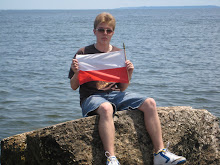The Promise is a film having to do with love on both sides of the Iron Curtain. However, the film is not about Konrad and Sophie’s decades long affair. The film is about Germany in the post war period and how in some regards it changed very little. Certain cultural aspects of Germany shine through political lenses and are visible on both sides of the Berlin Wall. Attention to detail that is characteristic of Germans is apparent and so is political rhetoric. The film also deals with the stability of society on the eastern side of the divide.
German manufacturing today prides itself on an attention to detail that is well known the world over. In the film, the guards are trained with razor precision they are given optimal monologue to yell at anyone attempting to cross the international border, how long they should wait after these cries and how to charge and attack (preferably with the knife end of their bayonets). Rather than producing BMWs, they have produced a soldier, one that is perfectly equipped for the job he was designed, in this case securing the East-West crossing. They even play head games with Konrad when he is caught in the beginning, they tell him that all of his compatriots were caught. Even though they know that he will eventually find out that they have made it across, they were trained to shutdown their target to a very high degree. This sort of gruesome precision is similar to the intense military dogma of the Nazi regime.
The attention to detail characteristic of the German culture is also evident in Konrad’s schooling. He goes on to a university in Potsdam where he excels at Astrophysics. He is so talented in the field that he proposes a postulate for why the spots on the sun flare up the way that they do. It is enough to earn him professorship and allow him to attend IAU conferences in foreign cities. Through such luxuries, he is able to meet with Sophie and rekindle their love after being away from one another for nearly a decade.
As characteristic as attention to detail is to Germany, so too is political rhetoric. In the clearly and tensely divided zone of Berlin, politics influences much of everything. One of the first things that Sophie and her friends see when they get to West Berlin is a long television announcement about the futility of escaping from east to west. The authorities in the program explain that the Berlin Wall is just temporary. It has only been one and a half years and that it will likely not last much longer. Later in the film, this message sticks in the minds of the protagonists, when they say that since it has been twenty years, the wall will likely come down soon. The Germans have a history of convincing and strong governments and they continue this tradition here. Also in the television report, they show one groups efforts of digging a tunnel in eight hours shifts, three shifts a day for weeks that were caught regardless. While this appears to hold credibility among most of the east and west Germans, the fact remains that not only did four teenagers escape via the sewer lines, but there is a man in West Berlin that Sophie tries to hire who brings people over from one side to the other regularly. It is critical to understand that, as in the past, Germany is making political claims in an effort to convince people of a certain reality. Propaganda still runs strong in post war Germany, whether it is socialist or democratic.
While political rhetoric and a well engineered border patrol keep the wall up and people on their respective sides, it is strongly reinforced by the fact that east and west develop separately, but stably. Konrad has several legitimate opportunities to escape East Germany, but refuses to do so each time. He volunteers to stay behind while the others escape in the sewer when it may not have been necessary. When Sophie sends for him via the sewer runner to bring him over he does not show up. Even when astrophysics conferences offer him a cleaner route to the west, he still stays behind on the eastern side of the curtain. Clearly, Konrad likes the stability of the east and is afraid of what lies beyond the cement and barbed wire. In the east, he has his successful professorship where he may study the complexities of the universe. In the west, there is a woman, eventually with his baby, and little else that he knows. What he knows, is the eastern way of life. He is utterly shaken when Sophie joins the protests in Prague and this may have contributed to his desire to hold on to his security. This is a telling symbol of the people of East Germany. Without any major revolutions, like the one in Prague, the Germans show that while the system of communism was not ideal, it met their needs. For a generation that suffered through the horrors of World War II, such guaranteed materialism may have been enough to satisfy them. Even the generation that followed may have found much comfort in the socialist way.
The Promise is a film that dives into the minds of Germans from the 1960s through the 1980s. For the non-political scientist it provides a clear picture of some of the issues that plagued the political culture of both Germanys, and of other nation-states on both sides of the Iron Curtain. Attention to detail, political rhetoric, and stability after unstable times explain why Konrad, Sophie, and other Germans alike, lived throughout the Cold War that took place and not a different one.
Monday, April 25, 2011
Subscribe to:
Post Comments (Atom)


No comments:
Post a Comment